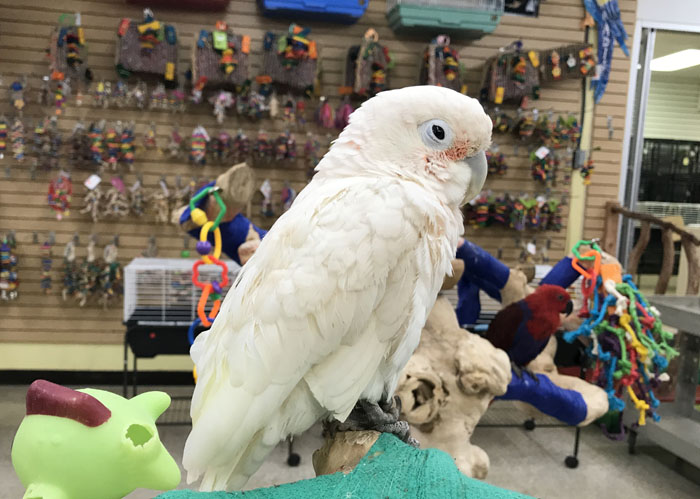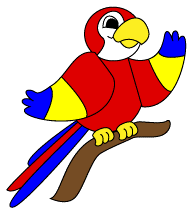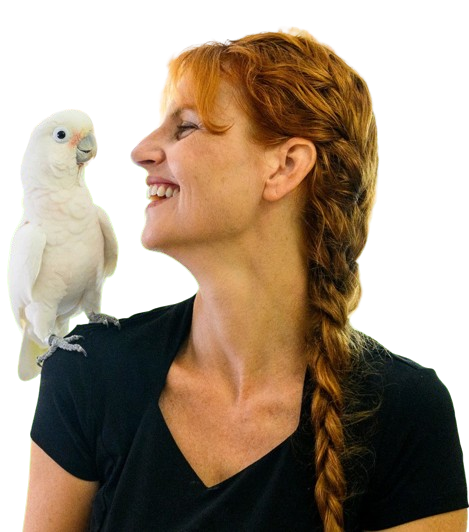
A Guide to Parrot Nutrition: What to Feed and What to Avoid
Parrots are vibrant, intelligent, and sociable birds that require a balanced and nutritious diet to thrive. Proper nutrition is crucial for their overall health, longevity, and well-being. In this guide, we’ll explore the essential components of a parrot’s diet, the best foods to include, and those to avoid to ensure your feathered friend stays healthy and happy.
The Basics of Parrot Nutrition
A balanced diet for a parrot includes a variety of fresh fruits, vegetables, high-quality pellets, seeds, and nuts. The goal is to provide a wide range of nutrients that mimic the diverse diet parrots would consume in the wild.
1. Pellets
High-quality commercial pellets should form the base of your parrot’s diet. Pellets are designed to provide essential vitamins, minerals, and nutrients that may be lacking in other food sources. When selecting pellets, choose those free from artificial colors, flavors, and preservatives.
2. Fresh Fruits and Vegetables
Fresh fruits and vegetables are vital for providing essential vitamins, minerals, and antioxidants. Aim to offer a variety of colors and types to ensure a wide range of nutrients. Some great options include:
- Fruits: Apples, pears, bananas, berries, grapes, mangoes, papayas, and citrus fruits. Always remove seeds and pits, as some can be toxic.
- Vegetables: Leafy greens (kale, spinach, Swiss chard), carrots, bell peppers, broccoli, zucchini, sweet potatoes, and peas.
3. Seeds and Nuts
Seeds and nuts are an excellent source of healthy fats, proteins, and other nutrients. However, they should be offered in moderation due to their high-fat content. Some nutritious options include:
- Seeds: Sunflower seeds, pumpkin seeds, and flaxseeds.
- Nuts: Almonds, walnuts, pecans, and macadamia nuts. Ensure they are unsalted and unseasoned.
4. Grains and Legumes
Grains and legumes provide additional protein, fiber, and nutrients. Cooked whole grains such as quinoa, brown rice, and barley, as well as legumes like lentils and chickpeas, can be included in your parrot’s diet.
5. Protein Sources
While pellets, seeds, and nuts provide some protein, additional sources can be beneficial, especially for larger parrot species. Cooked eggs, lean meats, and certain dairy products (in small amounts) can be included occasionally.
Foods to Avoid
Certain foods can be toxic or harmful to parrots. It’s essential to know which foods to avoid to prevent health issues and ensure your parrot’s safety.
1. Avocado
Avocado contains persin, a toxin that can cause heart damage, respiratory distress, and even death in parrots. Avoid feeding any part of the avocado, including the fruit, pit, and skin.
2. Caffeine
Caffeinated beverages like coffee, tea, and soda are harmful to parrots. Caffeine can cause hyperactivity, increased heart rate, and potentially fatal cardiac arrest.
3. Alcohol
Alcohol is toxic to birds and can cause severe health issues, including liver damage, respiratory problems, and death. Keep all alcoholic beverages away from your parrot.
4. Chocolate
Chocolate contains theobromine and caffeine, both of which are toxic to parrots. Consumption can lead to vomiting, diarrhea, seizures, and potentially death.
5. Onions and Garlic
Onions and garlic contain compounds that can cause digestive issues and hemolytic anemia in parrots. Avoid feeding any form of these vegetables.
6. Salt
Excessive salt intake can lead to dehydration, kidney dysfunction, and death in parrots. Avoid feeding salty foods such as chips, pretzels, and processed snacks.
7. Fruit Seeds and Pits
Some fruit seeds and pits contain cyanide, which is toxic to parrots. Ensure you remove seeds and pits from fruits like apples, cherries, peaches, and plums before feeding.
8. High-Fat and Sugary Foods
Foods high in fat and sugar, such as fried foods, sugary treats, and processed snacks, can lead to obesity, liver disease, and other health issues. Keep these foods out of your parrot’s diet.
Tips for a Balanced Diet
1. Variety is Key
Offer a diverse range of foods to ensure your parrot receives a wide array of nutrients. Rotate different fruits, vegetables, and other foods regularly to keep their diet interesting and balanced.
2. Introduce New Foods Gradually
Parrots can be picky eaters, especially when introduced to new foods. Gradually introduce new items to their diet, mixing them with familiar foods to encourage acceptance.
3. Monitor Portions
While fresh foods are essential, overfeeding can lead to obesity and other health problems. Monitor portion sizes and adjust based on your parrot’s size, species, and activity level.
4. Provide Fresh Water
Always ensure your parrot has access to fresh, clean water. Change their water daily and clean the water dish regularly to prevent bacterial growth.
5. Avoid Over-Supplementation
High-quality pellets should provide most of the necessary vitamins and minerals. Avoid over-supplementing unless advised by an avian veterinarian, as excessive supplementation can cause imbalances and health issues.
6. Observe Your Parrot’s Preferences
Pay attention to which foods your parrot enjoys and which they avoid. Use this information to tailor their diet while still ensuring a balance of nutrients.




